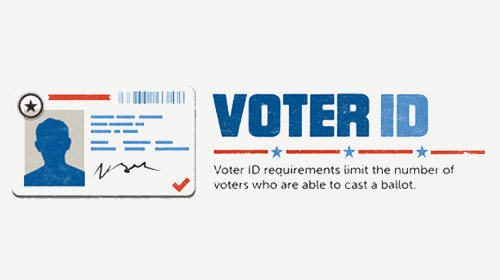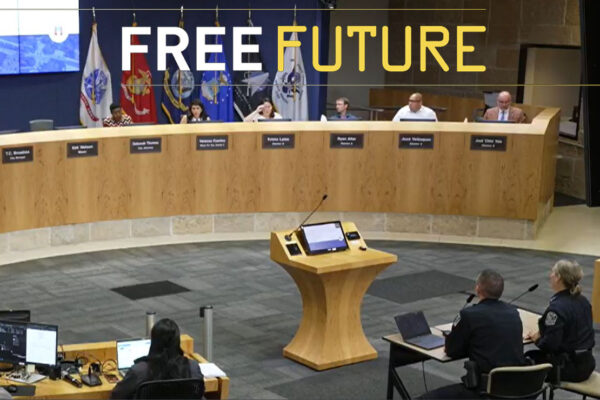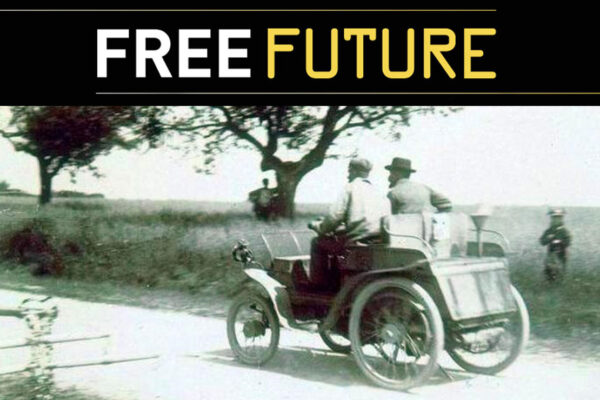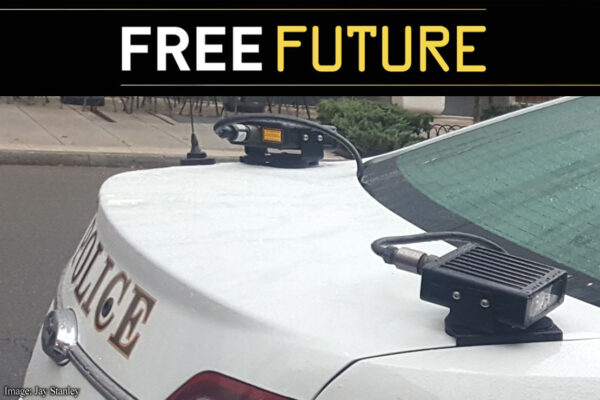ACLU Adds to Charges in Suit Challenging Wisconsin Voter ID Law
Amended Complaint Asserts Law Violates Voting Rights Act Protections for Minority Voters and Bars Veterans from the Polls
FOR IMMEDIATE RELEASE
CONTACT: (212) 549-2666; media@aclu.org
MILWAUKEE -- An American Civil Liberties Union suit that challenges Wisconsin’s voter ID law was amended today to include charges that the law illegally blocks minorities and veterans from accessing the ballot box.
The suit, which was filed in U.S. District Court with the American Civil Liberties Union of Wisconsin, the National Law Center on Homelessness & Poverty and Dechert LLP, also seeks an injunction so that many of the named plaintiffs can vote on April 3, when Wisconsin will hold its presidential primary and local elections.
The filing today supplements a federal challenge against one of the most restrictive voter ID laws in the nation and on behalf of a broad spectrum of plaintiffs, including white, black and Latino voters, homeless and low-income citizens, veterans and students.
“We can now demonstrate what we have always suspected—that strict voter ID laws have a more severe negative impact on black and Latino voters,” said Jon Sherman, an attorney with the ACLU Voting Rights Project. “The Voting Rights Act was created to combat exactly this type of barrier, and we intend to see it enforced in Wisconsin.”
The original suit, filed in December, said that Wisconsin’s practice of only allowing certain types of photo ID is a severe and unjustifiable burden and imposes a poll tax on voters.
The amended complaint charges the voter ID law:
• Violates Section 2 of the Voting Rights Act, which bans the use of voting practices that have a disparate negative impact on racial and language minorities. Research commissioned by the ACLU indicates the law has a disproportionate impact on Black and Latino voters, who are more likely to lack photo ID accepted for voting in Wisconsin.
• Arbitrarily prevents veterans who only have a Veterans Administration ID card from voting. Wisconsin deems such identification unacceptable.
• Violates the Equal Protection Clause of the Fourteenth Amendment because Wisconsin’s photo ID law results in the arbitrary treatment of voters trying to get a state ID card.
Larry Dupuis, legal director of the ACLU of Wisconsin, emphasized the importance of obtaining relief for named plaintiffs. “It is unconscionable that Wisconsin would prevent veterans who possess a valid federal ID from voting,” he said. “This is no way to thank them for their service to our country.”
One of those veterans is Sam Bulmer, 63, who served in the Air Force for 13 years and is currently homeless. Bulmer lacks a driver’s license and cannot obtain a state ID card due to the stringent requirements for a birth certificate in his home state of Kansas.
"Mr. Bulmer's experience is startling, but it’s not unique," said Heather Johnson, civil rights attorney at the National Law Center on Homelessness & Poverty. "Veterans experience homelessness at an alarming rate, and many will be excluded from the democratic process if this law goes forward. We need to send a clear message to Wisconsin and every other state considering similar legislation: we won't let you silence the voices of homeless veterans."
Also among those suing are two Black Milwaukee residents: Eddie Lee Holloway, Jr., who used to regularly serve as a poll worker, but whose incorrect birth certificate will prevent him from getting a state ID and voting; and Shirley Brown, who was born in Louisiana at home by midwife and as a result, has no record of her birth.
“All citizens should be free to vote,” said Neil Steiner, an attorney with Dechert LLP. “Disenfranchising eligible voters is not a valid rationale for a law.”
The defendants include Wisconsin Gov. Scott Walker; Wisconsin Transportation Secretary Mark Gottlieb, who oversees the Department of Motor Vehicles and members of the Wisconsin Government Accountability Board, which oversees election laws.
Attorneys on the case include Sherman, Laughlin McDonald, and Nancy Abudu of the ACLU Voting Rights Project, Dupuis and Karyn Rotker of the ACLU of Wisconsin, Johnson and Karen Cunningham of the National Law Center on Homelessness & Poverty and Neil Steiner, Craig Falls, and Diane Princ of Dechert LLP.
To read the complaint in Frank v. Walker, go to: www.aclu.org/voting-rights/frank-v-walker-amended-complaint
For more information about voter suppression, go to: www.aclu.org/voter-suppression-america
Stay informed
Sign up to be the first to hear about how to take action.
By completing this form, I agree to receive occasional emails per the terms of the ACLU's privacy statement.
By completing this form, I agree to receive occasional emails per the terms of the ACLU's privacy statement.




